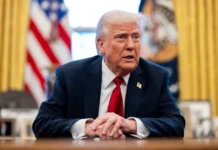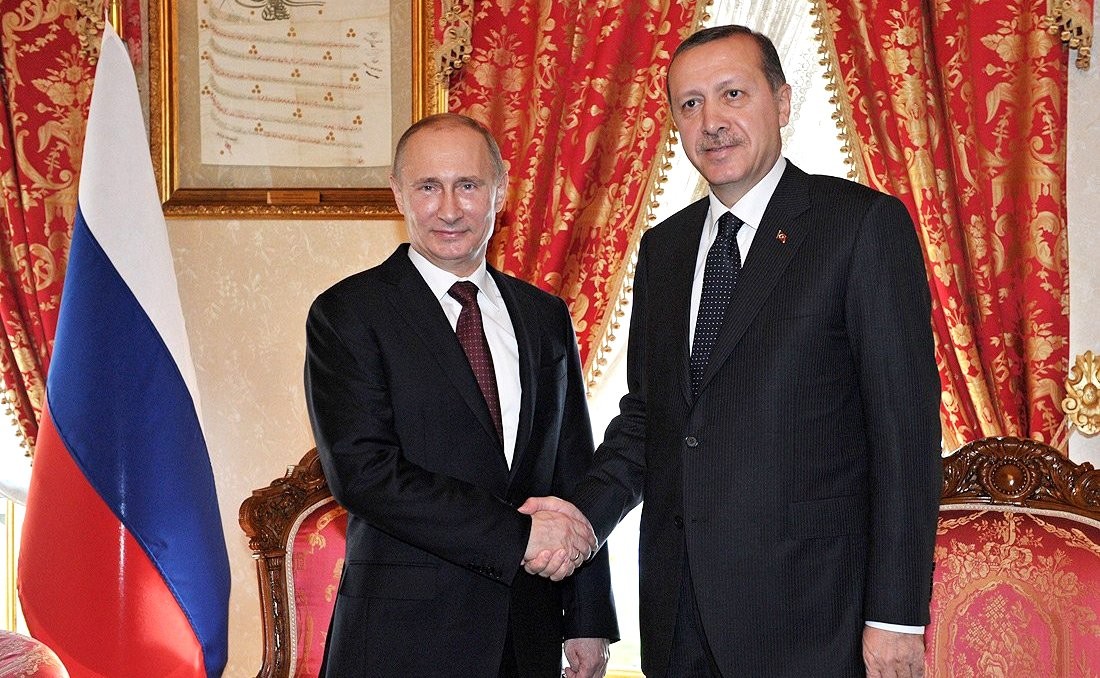No sooner had President Trump announced new sanctions and tariffs levied against Turkey in response to the imprisonment of an American pastor, as Qatar had announced a $15 billion investment into its counterpart in response to the falling lira and the likelihood of economic devastation. Mahmoud Abbas likewise signaled his support for the Turkish strongman. Iranians meanwhile, may be reaping the boons of the falling Turkish lira, just as Turkey may be enjoying the benefits of the cheaper prices on Iranian oil. Turkey already announced its intent to continue purchasing Iranian crude, as otherwise it would likely become fully dependent on Russia for its supply. Erdogan is already talking about pulling out of NATO – which ironically would make it easier for NATO members to sanction Turkey’s illicit activities. Russia, Turkey, and Iran are getting together for a summit in September. Despite significantly different political goals, the three countries are interdependent. Not only Syria remains a looming issue, but countering the renewed US commitment to sanctions and pressuring the rogue state actors is becoming a priority.
Russia has set out to work through US intermediaries, such as Senator Rand Paul, to convince the Trump administration to lift some of the sanctions – and the Treasury held it out as a possibility. So far, there is no evidence that Russia is backing down on any of the fronts that had the West levy sanctions against it. The ongoing aggression and creeping take over of Georgia’s territory elicited limited excitement in the US foreign policy circles. And yet, Russia’s takeover of Georgia would spell disaster for the alternative energy routes to Europe. Likewise, a recent Caspian deal with Iran may have been a loss for Iranian nationalist, but benefited and strengthened Russia. Russia is gaining a major alternative resource, and an opportunity for engagement with Turkmenian, Kazakh, and Azerbaijan government. Iran is left to spin its cessation of a significant piece of territory – but weakened by sanctions and internal turmoil may have little choice in the matter at this point. However, Iran’s advantage in Syria continues to hold. It may have gained access to a strategic border crossing from Iraq to Syria thanks to the Trump Administration’s inability to formulate a cohesive strategy.
This boost’s Iran’s position and makes it even less likely that Russia can pressure Iran on withdrawal from border areas with Israel. Skirmishes with the Israeli air force are likely to continue. Tensions over the next steps may lead to a deterioration in trust between these somewhat reluctant allies, but the apparent new resolve of the Trump administration in countering Iran influence, including through a formation of a new Iran Group within the State Department, dedicated to directing all aspects of this issue, recasts priorities towards countering the common enemy. China, too, despite being Russia’s economic rival, will soon be looking to strengthen relations with these countries, now that the Trump administration may be willing to sanction Beijing for the continuous importation of Iranian oil.
Deteriorating relations surrounding the trade war between Beijing and Washington is likely to push the country even closer towards its hegemonic counterparts. Despite its atrocious treatment of its Muslim Turkic minorities, China is also enjoying a growing trade relationship with Turkey. If the relations with the US continue to deteriorate, Turkey is likely to look for a stronger partnership with China. It has isolated many of the Sunni Arab states, and has made itself a nuisance in the region. Turkey is fairing better in Africa, where it has invested substantially into humanitarian aid and education, but that is not a substitute for global partnerships with Western states. The country that stands to benefit the most from the growing vulnerabilities, yet continuing tenacity of these states with hegemonic ambitions is Qatar. Doha has succeeded in playing all sides not only in geopolitics but in the global economy thus far. Emir Tamim bin Hamad Al Thani is benefiting from the US and Turkish bases on the peninsula; he has managed to convince the Trump administration that its trade with Iran is only due to the fear of the bigger state’s geographical proximities, it is cutting deals with Saudi allies such as Sudan in Africa, with the help of Turkey’s strong defense – and it is also investing into US energy (to the tune of $20 bln) to keep itself covered and to diversify away from the blockade imposed by the Anti-Terrorism Quartet.
Qatar has invested heavily into real estate in the US – investing into building giants such as Brookfield, buying up iconic pieces like the Plaza Hotel from the Saudi prince Alwaleed bin Talal – to real estate housing members of the Trump administration such as Stephen Miller in DC – and is now on its path to do the same in Europe, where it owns the famed Le Grand Hotel in Paris. Qatari investment into France has been growing substantially in various sectors, overall, including the real estate modernization of Paris. And just as the Saudis have moved away from sponsoring Wahhabism worldwide, Doha has taken their place, now funding mosques all over France. That development continued unabated despite France’s avowal to cut Qatar funding of mosques only a few years ago. Instead, only a year later, Qatar set out to build a luxurious Islamic Center, with a school, a mosque, a Da’wa center, an institute for Arabic language studies and more. What happened? In then-President Hollande’s failing economy, France was benefiting from the influx of foreign cash, and despite secularist and nationalist laws and proclamations, did not mind turning a blind eye to some mischief in exchange for Qatari gold.
Qatar’s role in Europe and the United States is akin to the role of Russian oligarchs in London. The latter infused so much cash into banks, shopping malls, and real estate that the British government was willing to turn a blind eye to the connections of these robber barons to organized crime, Putin’s intelligence network, and nebulous mercenary networks. As a result, a number of assassinations in England went by nearly unnoticed; indeed, the investigations of these Russians connections may have been suppressed. While Qatar is not yet on an assassination spree, it is too looking to make itself indispensable to Western economies, capitalizing on greed and ignorance of the elite circles on all sides of the political spectra. Indeed, it has likewise capitalized on the chaos surrounding Brexit, and the likely snubbing of the UK by the EU, to pour money into London, just like the Russians. These growing ties were recently cemented with the Emir’s July 2018 visit to London, mirroring the Saudi Crown Prince Mohammed bin Salman’s highly visible trip to the United States and a number of European countries in March 2018. World Cup 2022, an ill-begotten acquisition by means of secret handshakes under the table, is another instance of Qatar looking to put itself on the forefront of global investments and PR at the expense of basic business ethics, not to mention human rights inside the country.
The stadium was built in reliance on slave labor. Hosting the World Cup brings prestige and investment to the host country, but it is also a money making scheme in terms of tourism and advertising. The Saudis have launched a dead-end campaign to deprive Doha of at leaswt this victories, as England would stand to benefit from Qatar’s losing the bid. London views Riyadh as an important ally, and has supported it with intelligence in Yemen. Doha’s glittering donations might be too good to resist in the long term. They are immediate and they benefit all the right people. By contrast, KSA has sought to develop long-term relationships through joint project such as scientific and medical research with its counterparts in London. These less flashy investments, however beneficial to humanity and populations of both countries, are less striking to the elites looking to make a quick buck straight into their own pockets. However, Qatar’s recent investments are more than a long-term path towards independence on gas, which currently makes the tiny state the richest per capita country in the world. It also has geopolitical ambitions that go beyond playing spoiler for Saudis and Emiratis in Africa and the West. Those are unabating – Qatar recently announced a significant investment into Sudan’s agriculture. Even there, however, Qatar is going far beyond expending soft influence through The Qatar Foundation and appealing to the poor folk on an ideological level. It has recently set up a $1bln joint investment fund with AccorHotels to focus on Africa. A successful high end business venture in the rising continent can take Doha to a new level in the game. These hotels can bring in new Western and Asian clients, are a great source of both income and money laundering possibilities, and create yet another influential public face to Doha’s identity as a global power broker. South Africa, another long-standing Iranian ally, feeling the pressure from the economy collapsing under the weight of bad decisions (such as the recent constitutional amendment to allow for land confiscations), unbridled corruption, and seeing that Iran’s potential for bailouts may be curtailed by the pressure from the sanctions, has likewise turned to Doha for assistance. Doha’s role in Africa may soon grow from meddlesome to decisive.
The Trump administration’s crackdown on states that are circumventing the reimposed Iran sanctions is benefiting Qatar, which itself is not at an immediate risk of retribution. Already boasting massive global holdings, Qatar has been on a shopping tree, turning its spat with the other GCC members into a lucrative opportunity to grab international spotlight, as an underdog-turned-spunky rising star (or so goes the image Doha has developed). Buying up ports all over the world are just a start of undercutting the UAE at its own game, and placing itself into a geopolitically advantageous position of gaining unlimited access to international waterways. Most recently, Doha has signed over 50 bilateral agreements to protect overseas investments. Its increased global visibility makes Doha brazen. It has also amended free trade zones, which is likely to attract investors. Doha instituted laws that would protect foreign investors from expropriation and has incentivized them from customs exemption, and even potentially, freedom from income tax. In general, Doha seeks to create a UAE-style business friendly environment, easy to navigate, stable, and predictable.
The Trump administration may be insulted by Qatar’s in-your-face bailout of Erdogan’s failing economy, but so far there is no sign that this decision is coming back to haunt Doha, which has invested so heavily into PR, lobbying, and legal giants in the United States that the administration will have to take its presence on the ground in the US into consideration when developing a diplomatic response to this unfriendly move. Qatar’s publicity roadshow, however, is supplemented by substantive gestures that create a close business and economic relationship with the US which will be difficult to disrupt even pending major geopolitical differences. For instance, a Qatar Investment Authority affiliate is providing some of the debt financing for a $1 bln healthcare deal in the US. In addition to LNG investments, Qatar’s economy minister also earmarked a substantial sum of money(as in billions of dollars) for infrastructure projects in Miami, South Carolina, and Texas. The relationship is also expanding into other sectors, specifically SME (Small and Medium-sized enterprises), a key priority for the Trump administration and many of the Republican officials. Ambassador Anne Patterson, the president of the US-Qatar Business Council expressed the priority for investment in each other’s SMEs in the context of US-Qatar economy related meetings in the spring.
eed, some members of the Trump administration, such as the Commerce Secretary Wilber Ross, may already be compromised by meetings with the Qatar Investment Authority, amidst rumors of skimming business partners to the tune of $120 million. The QIA was a client of Ross’s former wealth management firm.
While Ross is facing growing scrutiny, the QIA has become the largest investor in the Credit Suisse – which may preclude the latter from future investment opportunities in Qatar’s regional rivals, such as KSA, which is desperately seeking investors. Qatar is also investing half a billion dollars into Indonesian tourism. Why Indonesia all of a sudden? The biggest Muslim country in the world, Indonesia has recently attracted a great deal of attention as a potential power broker in the “moderate Islam” influence game. Facing growing ideological extremism, Indonesia has asked Saudi Arabia to build and fund new mosques, which would eschew outreach by the Muslim Brotherhood proxies. At the same time, however, Iran moved in on the market, doubling its non-oil trade with Indonesia by January 2018. Qatar is seeking to undermine Saudi influence in Indonesia, and to coopt the country through hefty financial investments. Indonesia has come to play an important part in the cultural zeitgast in the United States.
Seemingly distant from the Arab World, it has been played up as a growing moderate actor in the Muslim World, a potential counter to the pernicious Wahhabist influence of the Gulf States. Major Jewish organizations in the US boast of these friendly ties, which go back years before Arab states have started opening up to the possibility of closer ties to the Jewish community to counter the threat of Iranian influence. Indeed, an Indonesian cleric even made his way to the American Jewish Committee’s Global Forum gathering in Israel in June, speaking about the relationship between Islam and Judaism, and even sneaking in a meeting with Prime Minister Netanyahu. At the Forum, he was introduced as the leader of the “biggest Muslim ulema”, which some have perceived as an indirect shot in the direct of Saudi Arabia’s Muslim World League, whose executive direct Sheikh Dr. Muhammad Al-Issa spoke at the Museum of Jewish Heritage and visited the US Holocaust Museum less than two months before the event.
Saudi Arabia’s role in contributing to Indonesia’s religious moderation was not mentioned. From Qatar’s perspective, Indonesia is ripe for the picking: it is embraced by what Doha perceives as the powerful American Jewish organizational world, which Doha has likewise been working to coopt over the course of many months of campaigns, free propaganda trips, and donations; it enjoys a great deal of visibiity (all likely as a way of reaching the Trump administration – if so, it succeeded) ; its population is open to influence, and the Qatari influence there would be yet another thorn in Saudi Arabia’s side. Qatar’s popularity extends into Europe, where poorer countries such as Greece, feeling betrayed by the IMF, are courting Qatari investments. Qatar’s riches may bring about additional economic dependency in Europe, as it struggles with its own social and political issues and settling long term disputes and differences, some of which have contributed to Brexit. There’s also an economic angle to this move, however, as it further allows Qatar to diversify its resources and exert its influence – while retaining a friendly connection to Iran, for whom exerting ideological influence in a Sunni country remains an uphill battle. However, Iran stands to benefit from Doha’s independent efforts, as it too, hopes to undermine Saudi influence wherever possible and to strengthen its economic ties with Saudi allies as both a snub to the Kingdom and a way to evade the inevitable Western sanctions.
Along with other GCC counterparts that have not yet boycotteed it, such as Kuwait, Qatar is looking for investments in countries like the Phillipines, which have abandoned the United States, but were likewise left out in the cold by China. Can this outreach later influence Qatar’s relationship with Beijing? If the trade war with the US proves continuous, anything is possible. Major players from Hong Kong are already looking to partner with Qatari projects in NY, bringing about the expansion of the London-based LJ Partnership, which is said to invest for the Gulf royalty. Another such potential partner is an agricultural company in Brazil, a country that has also recently attracted the attention of Iran, which is seeking to expand its influence in Latin America.
Russia, too, is looking towards the Gulf States for economic boons, defense buddies, and possibly political alliances. Qatar and UAE’s competition for Moscow’s affection, at least the way this development may be viewed in the US, ultimately benefits Putin’s plans for increased presence in the Middle East, and finding alternative contacts and ways to evade US-led international sanctions. If officials, sanctioned under the Magnitsky Act, can no longer settle in Miami or gallivant with US officials in DC, they can take their sorrows to Dubai or Doha, this thinking goes. Moscow has been an economic rival to these states up until this point; the latest tensions within OPEC, largely fueled by the Trump administration’s quest for primacy on the market, even as Iran challenged the downfall of oil prices, and Saudis looked to find an alternative to their economic woes by coordinating with Russia, ma ultimately be resolved if Russia finds itself in dire enough straits economically, and the Trump administration continues to look for short term market game while ignoring the potential for longer term relations with its Gulf counterparts. Moscow will seek to exploit these grievances, despite the fact that its close relationship with Iran makes a long term alliance non grata to KSA, UAE, and Bahrain. Qatar is a different story; it may look to cultivate its ties to Moscow and perhaps, in the future be seen as a source of financial benefit in times of need. Indeed, the QIA recently raised its stake in Russia’s oil giant Rosneft, at the center of the sanctions scandals in the US. It’s a money making opportunity for Qatar and a vote of confidence for Russia.
In other words, Qatar’s purchase power may turn out to be the very lifeline that can save the struggling ambitions of the US adversaries and frienemies – Turkey, Iran, Russia, and China, for a start. China is in no danger of an economic collapse, but the trade war with the US coupled with potential sanctions against purchase of Iranian oil may bite even its prowess. As it is, China has not been able to come through on many of its commitments to the proxies and tributaries it has taken under its wing – such as Pakistan and Phillipines, for instance. Iran, of course, will likely see Qatar as a face of legitimacy in the course of growing isolation by Western countries and US allies all over the world. Qatar can serve as a friendly port-of-call, both for Iranian ships and investments, a place to launder money, and send in secret emissaries for below-the-radar indirect deals with those of the Western states which are perfectly fine with the Islamic Republic, so long as they can make money off of it. Qatar’s economic isolation is limited to a few countries. Another neighbor, Oman, has actually been growing joint investments with Qatar – while likewise growing closer to Tehran.
While Russia has been wreaking havoc throughout Latin America by supporting and empowering failing leftist dictatorships such as Cuba, Venezuela, and Nicaragua, resulting in massive influx of refugees into Colombia, Panama, and Ecuador and potential destabilization of the continent, Qatar, which has money to burn is seeking to build up its presence whenever possible. Russia’s destructive strategy may ultimately create security problems for the US, but will not benefit Russia’s economy or long term prospects in Latin America. A financial partnership with Qatar, however, may turn this failing strategy into an equally troublesome success. Should Russia’s and China’s alliance with Qatar grow, the effects may mirror the growing influence of Iran and Turkey in Africa – or worse. Qatar may become the financial backer for the long-term, more successful presence of all of these countries in Latin America, Asia, and elsewhere, while profiting handsomely from the potential for joint ventures in countries seeking influx of money and growing increasingly hostile to the Western interests.
Iran’s contribution to this scheme may consists of terrorist recruitment and training and masterminding special operations and intelligence gathering. However, it needs a legitimate way to launder its profits, otherwise, in the long run, if the US and others continue to keep up the pressure, this strategy is unsustainable if the Islamic Republic is to survive. The new generation of Iranian officials is hungry and ideological; the recent crackdown on corruption will do nothing to alleviate popular dissatisfaction, but it will clear the ranks of those who have grown too comfortable and are not sufficiently dedicated to the goals of the Islamic Revolution. Closer partnership with Qatar may change the dynamics, snatching the path to the ideological victory from the jaws of economic defeat. All this will very likely happen even as the Trump administration, resolute in its efforts to counter the Iranian threat, turns a blind eye to Iran’s little brother, which is making himself quite comfortable in the US own backyard, and even living room. What could possibly go wrong? Qatar is Iran’s key to the republic… and Russia’s and China’s and Turkey’s. They will soon be milking this opportunity for all it’s worth. And sanctions? Sanctions will be very easy to ignore once there are other, legitimate sources of income.


























